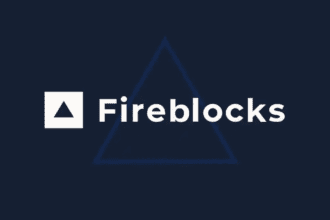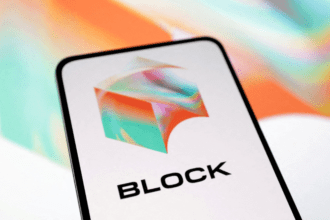The term blockchain technology is often associated with the cryptocurrency world with Bitcoin and Ethereum at the center stage. However, blockchain encompasses features that surpass this domain of application. Essentially, blockchain is a cutting-edge solution that has been devised to ensure that data is stored in a secure distributed system that cannot be hacked or deleted. The same centralized ledger can be applied to a number of industries with different purposes, bringing more transparency, safety and efficiency into operations. In this article, we shall delve into the workings of this technology as well as how it’s transforming the digital landscape scratch.
What is Blockchain Technology?
In computer science, blockchain eliminated the need for trusted intermediaries by employing a new kind of distributed ledger technology (DLT), in which the same database is controlled by several nodes or computers on a network/software. Within this framework of things, it becomes very hard for any individual to modify or even destroy the information existing in the blockchain after it has been put there. Each block in a blockchain is thus a collection of the transaction log depending on the number and value of transactions and the blocks are put together in the order of occurrence and linked via cryptography to form a chain of data.
Consequently, where databases are simply a structured row-column rectangular form which is under the control of one vested authority, in a blockchain there is no administration over all members but runs on a decentralized system. Each and every person participating (node) in this network has a complete version of the entire books of account.
Key Components of Blockchain Technology
- Decentralization: One of the defining features of blockchain is its decentralized nature. Instead of relying on a central authority (like a bank or government) to validate transactions, blockchain enables participants within the network to collectively verify and validate each transaction through consensus mechanisms.
- Cryptographic Security: Blockchain uses advanced cryptographic techniques to secure data. Each block in the chain is connected to the previous one via a unique cryptographic hash. This ensures that if anyone attempts to modify a single block, they would need to alter every subsequent block in the chain, making tampering practically impossible.
- Transparency and Immutability: Once a block is added to the blockchain, the data it contains becomes immutable, meaning it cannot be changed or deleted. This provides an auditable and transparent record of transactions, which can be particularly useful in industries like finance, supply chain management, and healthcare.
- Smart Contracts: Smart contracts are self-executing contracts with the terms of the agreement directly written into code. These contracts automatically execute actions when predefined conditions are met, eliminating the need for intermediaries and speeding up processes. Popular blockchain platforms like Ethereum have integrated smart contracts to enable decentralized applications (dApps) that can be used across a range of industries, from insurance to real estate.
How Does Blockchain Technology Work?
Blockchain operates through a series of steps that ensure data is securely verified and stored across the network:
- Transaction Initiation: A transaction is initiated by an authorized participant in the network. This could be anything from transferring digital assets, updating records, or executing a smart contract.
- Block Creation: The initiated transaction is bundled together with others into a block. This block contains all relevant data about the transaction, including a timestamp and the digital signature of the initiator.
- Validation: The new block is sent to all nodes in the network. These nodes, which are often referred to as “miners” in public blockchains like Bitcoin, work together to validate the transactions in the block using consensus mechanisms. Common methods include Proof of Work (PoW) and Proof of Stake (PoS), where participants must solve complex mathematical problems or stake tokens to validate transactions.
- Block Addition: Once validated, the block is added to the existing blockchain, becoming a permanent part of the ledger. This process is highly secure, as any alteration to a block would invalidate subsequent blocks, ensuring data integrity.
- Ledger Update: After the block is added to the blockchain, the update is distributed across all nodes in the network, ensuring every participant holds a copy of the most up-to-date ledger.
Types of Blockchain Networks
There are several types of blockchain networks, each designed to meet different needs:
- Public Blockchains: Public blockchains, like Bitcoin and Ethereum, are open to anyone. These networks are completely decentralized and rely on consensus mechanisms like PoW or PoS to validate transactions.
- Private Blockchains: Private blockchains operate in closed networks, often used by enterprises or organizations for internal operations. Access is restricted, and only authorized participants can validate and view transactions.
- Hybrid Blockchains: Hybrid blockchains combine elements of both public and private blockchains. They allow businesses to control access to specific data while still maintaining the transparency and security benefits of blockchain technology.
- Consortium Blockchains: In a consortium blockchain, multiple organizations manage the network. This type of blockchain is common in industries where collaboration among trusted parties is required, such as supply chains or banking consortia.
Applications of Blockchain Technology
Blockchain’s versatility makes it applicable to a wide range of industries:
- Cryptocurrency: Blockchain’s most well-known application is in cryptocurrencies like Bitcoin and Ethereum, providing a secure and decentralized way to conduct financial transactions without intermediaries.
- Supply Chain Management: Blockchain enables end-to-end traceability in supply chains, ensuring product authenticity and reducing fraud.
- Healthcare: Blockchain can securely store and share patient data, giving patients control over their medical records while improving transparency and efficiency in healthcare systems.
- Smart Contracts: By automating contractual agreements, smart contracts streamline processes, reduce costs, and eliminate the need for intermediaries.
- Finance: Financial institutions use blockchain to facilitate faster, more secure transactions. It also allows for the automation of various processes, including cross-border payments, reducing costs and time.
Challenges and Future Potential
While blockchain presents numerous advantages, it also faces challenges such as scalability, high energy consumption (especially with PoW systems), and regulatory hurdles. Despite these challenges, blockchain continues to evolve, and innovations like layer-two solutions (e.g., the Lightning Network) aim to improve its efficiency and scalability.
As blockchain technology matures, its applications are expected to expand beyond cryptocurrency, unlocking new possibilities in industries ranging from real estate to voting systems.
Conclusion
Blockchain technology is fundamentally reshaping how we think about data security, transparency, and decentralization. By eliminating intermediaries and providing a secure, immutable record of transactions, blockchain offers immense potential to transform industries and create new opportunities for innovation. As this technology evolves, it will undoubtedly play a critical role in the future of digital transactions and decentralized applications. Whether you are exploring cryptocurrencies or looking for innovative solutions for your business, understanding blockchain is essential for navigating the future of the digital world.
Join Our Telegram Free Channel for Free Crypto Singals and Charts: t.me/coinextoday








